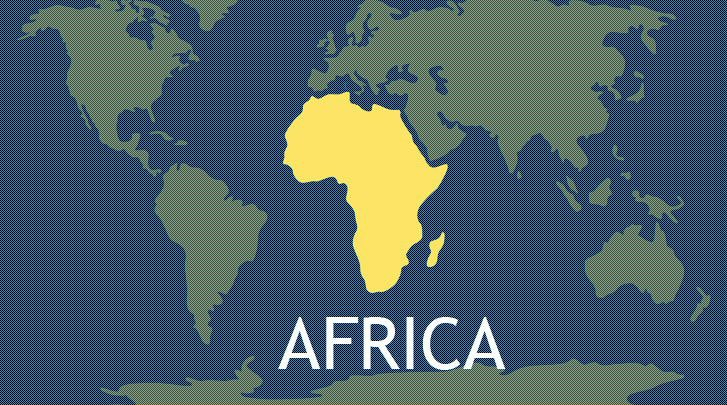
AS THE novel coronavirus rages through the world and spreads rapidly in the U.S., Africa is the least-affected continent at the moment, with less than 300 reported cases in roughly half of its 54 countries so far. A number of media outlets have reacted with a confounded tone, surprised that Africa does not have more cases and wondering if the low numbers are due to a lack of testing.
Health officials say that the main reason the continent has thus far been spared major outbreaks is due to the infrastructure set up during the Ebola epidemic that is still in place, as well as lower overall international air travel rates. At the same time, they acknowledge that the picture is not all sunny — the virus in some countries is likely spreading unchecked. But in Nigeria, the continent’s largest country by population, investments in lab capacity and coordination with the World Health Organization for testing have paid dividends. “Over the last three years, we have strengthened capacity at our National Reference Laboratory to provide molecular diagnosis for all epidemic prone diseases and highly infectious pathogens,” Chikwe Ihekweazu, director of Nigeria’s Center for Disease Control, told The Conversation.
The pandemic is exposing major flaws in higher-income countries’ health systems and turning the tables on decades of travel restrictions targeting Africans. When West Africa suffered from the Ebola crisis from 2014 to 2016, the region was often painted as a weak link in the global health system, and many airlines cut flights to Guinea, Liberia, and Sierra Leone. Four years later, Africa is at risk of contamination primarily from Europe, China, and the U.S. Besides Egypt, nearly all the continent’s confirmed cases have come from travelers from European or East Asian countries, though that looks likely to change soon as cases rise rapidly across the continent and community transmission becomes more likely.
In a dramatic shift in fortunes, African countries — whose citizens often have to prove their health status to even get a visa to travel to Europe — have moved swiftly to control arrivals from European countries. Ghana and Kenya announced new measures prohibiting travelers from countries affected by Covid-19, the first two African nations to put in place blanket travel bans, while Senegal and Kenya also announced school closures. The Democratic Republic of Congo imposed quarantine measures on travelers from Italy, France, China, and Germany. After restricting travelers from high-risk countries to quarantine, Mauritania deported 15 Italian tourists and Tunisia deported 30 other Italians for violating theirs. Rwanda, Uganda, Mali, and others have imposed similar quarantine measure for European travelers, while across the continent, passengers are screened for their temperature at international airports. A Cameroonian news outlet reported higher arrivals from Italy due to people trying escape their coronavirus-infected country.
Craig Spencer, the American doctor who contracted the Ebola virus while providing emergency medical relief in Guinea in 2014, agrees that the Ebola experience left many African countries better prepared. “There’s been a substantial increase in both the human resource capacity, the financial investment, and really, the logistical strengthening of public health and epidemic response capacity in sub-Saharan Africa,” Spencer, who is the director of global health in emergency medicine at New York-Presbyterian/Columbia University Medical Center, told The Intercept.
Affected countries like Senegal and Nigeria are not reporting shortages of tests at this time, though testing labs are mainly located in large cities and are not necessarily equipped to scale to test thousands of people a day across the country and in more rural areas. Yet unlike the U.S., where the Centers for Disease Control and Prevention reportedly blocked coronavirus testing as the virus was first spreading at a nursing home in Washington state, and has struggled to provide an adequate response across the nation, there is strong political will from countries like Senegal to ensure that concerned citizens have access to tests.
Senegal, which is currently getting test kits from WHO, plans to manufacture its own tests with support from the U.K., which will be ready by June. Dr. Amadou Sall, the director of Senegal’s Institut Pasteur, which has been responsible for testing in the country, told Africanews, “I’m happy and proud [about] what Africa has done this time because usually we spend time running after epidemics when it is there, but in this time we have been prepared.” African countries are working closely with WHO, a global body from which the Trump administration has tried to cut $65 million. The U.S. decided not to use WHO’s kits, according to Dr. Ashish Jha, a director of Harvard University’s Global Health Institute.
The U.S.’s failure to prepare adequately for the spread of Covid-19, and the confused messaging from Donald Trump, has meant the U.S. is a weak link in the world health system, making it more difficult to fight the disease globally. “I expected America to stand strong against this pandemic, but they failed the world — that’s my clear assessment,” an Ethiopian health official, who asked not to be named, told The Intercept. “The international community should stand in solidarity” but instead the pandemic was viewed initially as China’s loss and America’s gain, he added.
Africa’s strong response might not be able to hold on for much longer, however, as new cases have shown up in Ghana, Gabon, Guinea, Rwanda, and Kenya. Sudan’s first case was tested positive posthumously, indicating that the disease was already there and spreading unchecked for multiple weeks. Ethiopia’s first case, confirmed Friday, was a Japanese man coming from Burkina Faso, making it the first case of cross-continental transmission. It also means there’s likely more unreported cases in Burkina Faso, which does not have the resources that Senegal has and is fighting an insurgency that has crippled its state.
“We are now working under the assumption that it’s already here,” the Ethiopian health official said. Although Ethiopia has up to 10 laboratories capable of testing for coronavirus, the official said, “the number of tests we have is very, very disappointing. It’s maybe 40 or 50.” There are only 200 intensive care units in the capital, Addis Ababa, he added.
Most countries’ monitoring of temperatures has been limited to airports. Higher rates of autoimmune conditions like HIV in southern Africa will put many at risk, while overall, health systems on the continent remain fragile. A serious outbreak will be a major challenge because of a likely difficulty in scaling up intensive care units and ventilators; countries in Africa will likely look to China, the U.S., and WHO for help.
“Whether it’s Nigeria or New England, without resources already in place, it’s really, really hard to scale up quickly,” Spencer explained. “Despite the compounding inequalities between global north and global south, we still have a lot of commonalities in that there are gaps in our preparedness and weaknesses in our health systems that pandemics can take advantage of.” Source:




